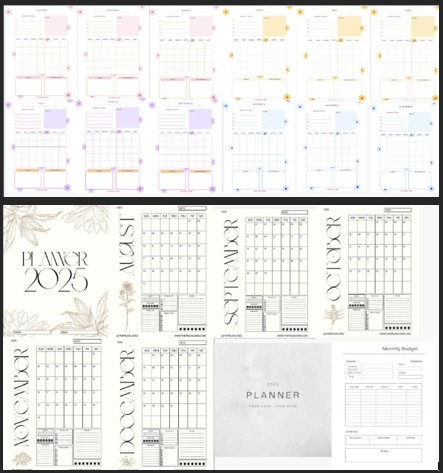SEO principles is more than a set of tweaks. It’s the difference between having a website that sits in the internet’s no-man’s-land or one that pulls regular, engaged visitors. No shortcuts, no magical hacks—just sustained, practical effort. But what actually moves the needle? Below, you’ll find 13 SEO Principles, each based on real experiences and repeated wins (and, sometimes, mistakes) in publishing. What SEO Pros Want You to Know will help website owners and digital marketers bring in more organic traffic, boost visibility, and build real authority.
Optimize Everything from URLs to Conclusions

Optimized content is the foundation of SEO. Most people stop at adding keywords to the body text. That’s not enough. You need to optimize all touchpoints where Google (and readers) look:
- Title: Your main keyword should lead the way.
- URL and Slug: Short, readable, and keyword-rich.
- Meta Description: Write one that hooks users and matches search intent.
- Images: Compress files, use alt tags with keywords, and choose a main image that reflects the content.
- Internal Links: Connect your related articles naturally to keep readers moving.
- Outbound Links: Cite trustworthy sources.
- Length: Match your depth to searcher expectations—sometimes short is fine, but don’t starve an article.
- Main Image: Draw readers in but also improve shareability and context.
It’s easy to ignore optimization outside the main text. But those small details? They add up.
Don’t Assume Anything! Check Grammar, Facts, Quotes
You think you know that one fact—until you don’t. I’ve learned this the hard way: once, we published an article discussing advertising on Wikipedia using Gibraltar as an example. Heated comments exploded not over the main point, but the claim that Gibraltar is a country. Spoiler: It’s a territory. Lesson learned.
- Triple-check what seems obvious.
- Fact-check quotes, stats, references, and even common sayings.
- Fix errors quickly if a mistake slips through.
Question everything. It’s better to lose five minutes fact-checking than to lose trust.
Being Consistent Is Difficult. It’s Also the Key to Success
Anyone who has published more than a handful of articles knows consistency isn’t easy. Some weeks, writing flows. Other weeks, it’s almost comically hard. But the truth is simple: the sites that push out useful, optimized content on a regular schedule are the ones that move up in rankings and gain loyal readers.
- Stick to a schedule—even if it’s monthly or bi-weekly.
- Prioritize quality, but don’t disappear for months between posts.
A steady drumbeat works better than a loud, scattered burst.
Originality Is Good, but so Is Content Update
Sometimes, gaining ground means updating what you already have. We revisited old articles, added new info, refreshed stats, and saw a clear rise in our traffic. Even if a post has dropped off Google’s radar, a good update can revive it.
- Revisit and update outdated content.
- Add new insights, recent examples, or better images.
- Redirect or merge posts if you have duplicates.
If an article doesn’t help now, fix it or give it new life.

Google Algorithms Come and Go, Quality Content Stays
Ranking tricks come and go. Great content stands the test of time. We’ve seen it over and over: solid articles keep bringing traffic long after the latest update rolls out.
- Don’t write for search engines only.
- Focus on education, insight, and usefulness.
- If the quality is there, your post will survive most storms.
Sure, sometimes the algorithm bites good content. But that’s rare. The real risk is putting out mediocre work.
Creativity Is A Lot of Hard Work
Larry King’s father thought America’s streets were paved with gold. Turns out, he had to pave them himself. Creativity is a lot like that—less about divine inspiration, more about showing up and doing the work.
- Don’t wait for the perfect idea—just start.
- Creativity grows through effort and collaboration.
- It’s fine not to feel inspired every day. Action makes inspiration more likely.
Write, edit, repeat. Often, your best thoughts arrive when you’re already moving.
Questions Are More Useful than Answers
Great content starts with questions. Not answers. Over time, we found that asking better questions—like which keyword placement actually helps in ranking—led us further than obsessing over final answers. Sometimes, the data led us nowhere special. But the process itself always taught us something.
- Start research with clear questions in mind.
- Be prepared to adjust your focus.
- Don’t be blinded by the search for the “right” answer.
Curiosity opens up stronger insights.

Forget Academic Writing
Nobody wants to feel like they’re reading a term paper. Unless you’re publishing in a technical journal, academic writing can distance your readers.
- Explain complex topics in plain language.
- Keep sentences short and to the point.
- Don’t dumb it down—just make it readable.
You’re talking with people, not passing an exam.
Solve Your Readers’ Problems, not Your Dilemmas
Ideas come from experience. But content isn’t about stroking your own ego—it’s about helping your reader. Every paragraph should answer these:
- Does this help them understand?
- Can they use this info in practice?
- Does this add value, or just make me look smart?
If it’s just the last one, save it for a chat with friends, not your next article.
The Title of the Article Will Influence Its Performance
Titles aren’t just labels. They’re magnets. We found that adding keywords like “Google” led to better clicks, shares, and rankings. But it’s not just about keywords—it’s about being clear, relevant, and a little interesting.
- Use keywords thoughtfully.
- Make your title specific but not clickbait.
- Test different formats to see what works.
It’s worth spending extra time on your headline—sometimes, it makes all the difference.
Write Less but Write Better
Fluff is everywhere. Don’t add to it. Every post should have a reason to exist.
- Set goals for each piece.
- Define the audience, the problem, and the action you want them to take.
- Don’t write just to check a box.
You’ll see better long-term results by being intentional about what you publish.

Write Less, Promote More
Creating content is only half the work. Promotion matters—often more than the writing itself. Early on, we wasted time pushing out post after post with little to show. Later, we flipped it: fewer posts, more time on outreach and sharing. The result? More readers.
- Build a list of channels and influencers for every post.
- Reach out after publishing, don’t just hit “publish” and hope.
- Use social media, email, and direct outreach.
A great article needs an audience, not just a spot on your site.
Stick to Your Principles
It’s tempting to chase short-term results with clickbait or shallow content—especially when you see competitors winning with it. Don’t. Stick to your standards. In the long run, quality wins. You may have dry spells or get frustrated, but persistence pays off.
- Hold your line, even when it feels thankless.
- Keep improving your work, even if the rewards are slow.
Margaret Atwood famously said 95 percent of the internet is just spam and junk. Make the remaining 5 percent count.

SEO is About Steady, Real Effort
All 13 tips above boil down to a simple, often forgotten truth: SEO is about steady, real effort. Optimize your whole site, not just the body text. Double-check every fact. Write consistently. Update old posts. Put quality and usefulness first—algorithms may change, but readers’ need for value stays the same. Stay curious, stay practical, and don’t compromise on your principles. Write less but make it count, then spend real effort on promotion.
Put these strategies to the test and watch your traffic, engagement, and results grow. Keep track of what works. Adjust as you go. Remember, the small steps add up—and good actions today bring compounding rewards tomorrow.
Blogs you may be interested in:
10 Blog SEO Strategies That Work in 2025
Proven Steps to Blog Posts People Read and Google Ranks
How to Start a Freelance Business while Working Full-time
Launching your Website, Now the Real Work Starts
6 Steps to Start a Blog and Make Money as a Blogger















